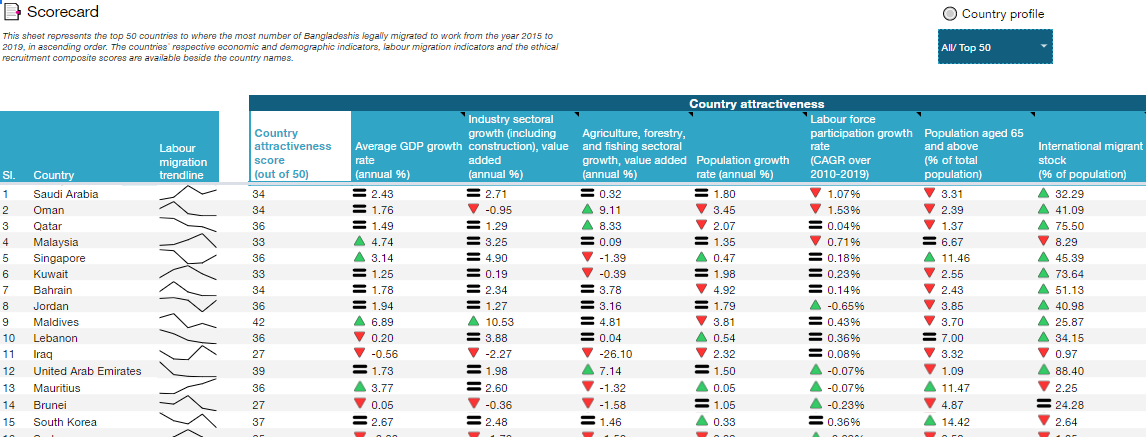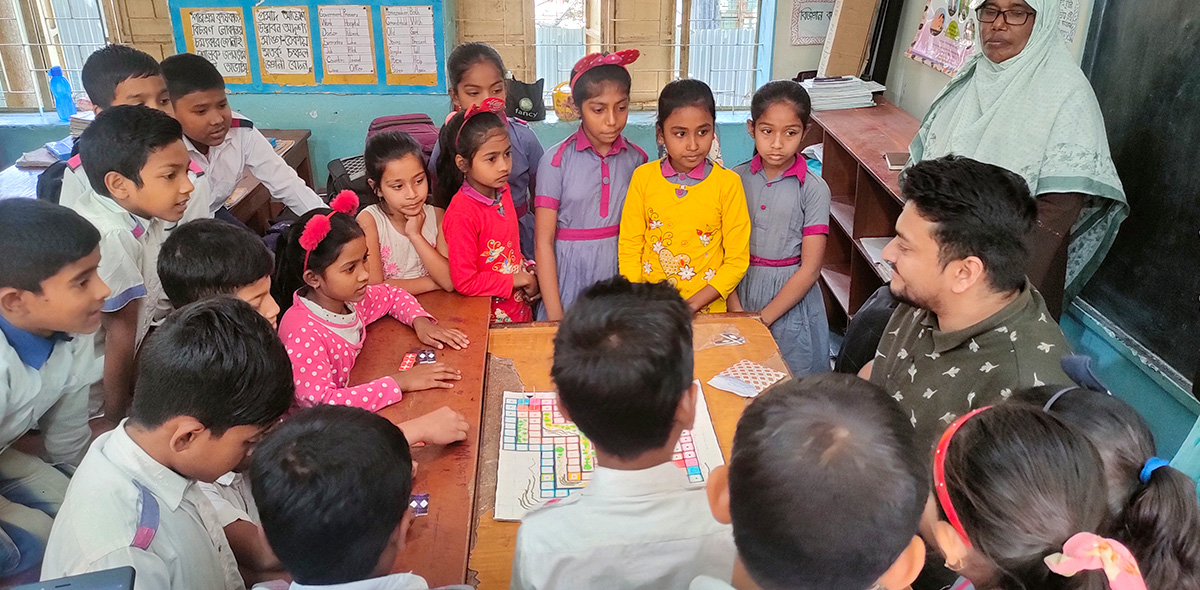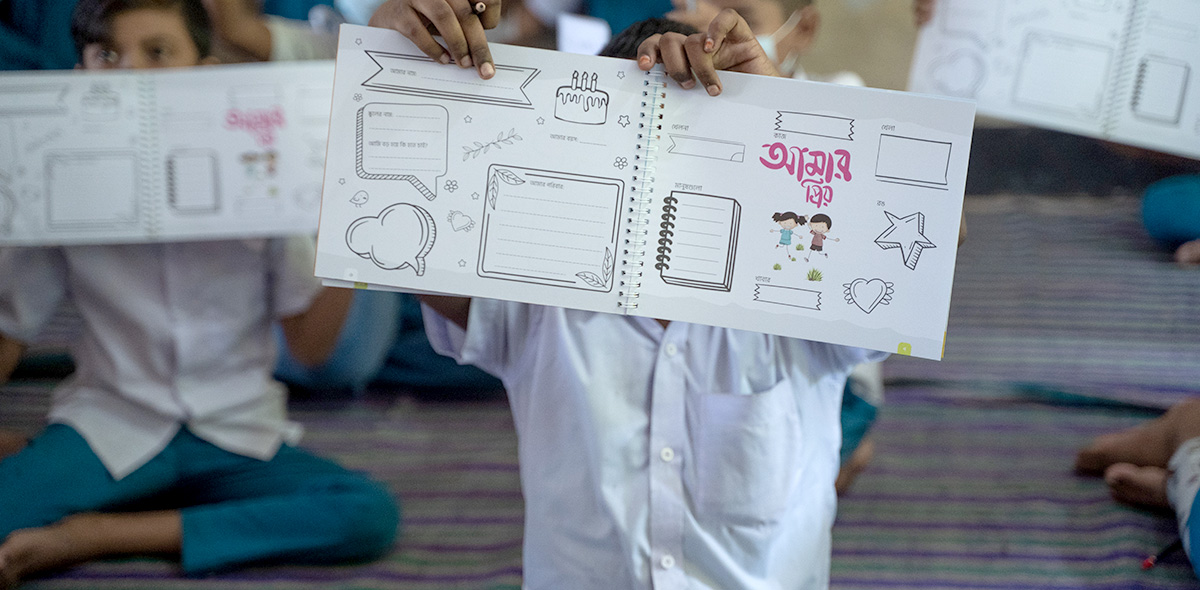Programme Collaboration

Innovation Fund
In the context of Bangladesh, the rapid adoption of mobile money has created exciting opportunities to accelerate financial inclusion for people living in poverty, and particularly women. BRAC believes there is a tremendous opportunity to use mobile money to innovate, better serve our clients, and become more efficient as an organisation. Since 2013, the Social Innovation Lab has partnered with the Bill & Melinda Gates Foundation through the Innovation Fund for Mobile Money project to explore the integration of mobile money across our programmes and internal operation platforms.
Download: Digital financial services playbook

Improving the go-to-market of a social enterprise providing land-based legal service
We worked closely with a social enterprise who provided rural customers with land-based legal services. To improve their go-to-market activities - we conducted focus group discussions with our clients and designed customer archetypes, rural marketing strategies, pricing strategy and localised value propositions - all contributing to their overall go-to-market strategy.

Assessing the viability of a travel-based social enterprise
We have conducted a thorough market discovery project to understand the viability of a travel-based social enterprise catering solely to low-income clients across Bangladesh. Based on the market signals - we have prepared multiple models which informed the leadership of the way forward. Based on our work - a new travel product was made by partnering with an existing online travel agency. The product solely caters to low-income migrant labourers who want to avail affordable airline tickets.

Business development analytics for a social enterprise providing low-cost migration services
To support the enterprise, we have developed a dynamic decision-making toolkit based on data from over 10 databases. A composite equation was made to help the enterprise leadership assess the business development opportunities in multiple country scenarios. The toolkit helped the team in identifying the final countries to conduct their business development activities.

Integrating Wellbeing into Rural School Outcomes
With mental health being a key area of focus for BRAC, The Social Innovation Lab (SIL) developed a multi-faceted well-being project for primary school students in Bangladesh, focusing on four key components: board game development, the para-counselor model, student activity guideline development, and school renovation. The project also included a curriculum development and research collaboration with the BRAC Institute of Educational Development (BIED).
The primary goal of this comprehensive well-being project for primary school students was to enhance the overall well-being, mental health, and social-emotional learning of students in Bangladesh. The project aimed to provide a comprehensive support system that addresses mental health and well-being needs for students, teachers, and the broader school community in rural Bangladesh and enhance the capacity of teachers and school staff in identifying, supporting, and addressing the mental health and well-being challenges faced by students, by creating an engaging, inclusive, and supportive learning environment that promotes social-emotional learning, mental well-being, and academic success for students.
Para-Counselor Model
The model involved training teachers in professional counseling skills to provide basic psychosocial support to students experiencing mental health challenges. This multi-layer support system aimed to identify, screen, and support children with trauma and mental health challenges while enhancing overall well-being in schools. The pilot saw the training of 20 teachers and deployed as para-counselors in 10 rural schools, equipping them with the professional tools and skills necessary to support primary school students effectively, particularly those in grade 4. An additional 92 teachers received training on the basics of mental health and well-being, with refresher training sessions from BIED scheduled throughout the year.
Curriculum Development and Research Collaboration with BIED
In collaboration with BEP and BIED, a comprehensive teacher training curriculum and training modules that focus on well-being, technology literacy, and psychosocial development were developed and evaluated. The collaboration aimed to enhance the capacity of teachers and para-counselors in promoting the well-being of primary school students.
A pre-assessment survey with 70 teachers from five formal schools of BRAC Education Programme (BEP) to gauge their understanding of well-being, technology literacy, and their roles in fostering students' psychosocial development was conducted. BIED’s curriculum team developed a well-being curriculum and training modules for teachers, including refresher and hand-holding session modules for 20 well-being ambassadors and 92 first-responders from 10 formal schools of BEP. The team also developed a monitoring and evaluation framework to assess the quality, progress, and outcomes of the training.
School Renovation
The well-being project implemented an innovative approach to school renovation, utilising a co-design process that involved teachers, parents, and students in decision-making. The school renovation process across five local BRAC schools in Faridpur, Mymensingh, Pabna, Bogura, and Rangpur adopted a participatory approach. The approach ensured a local needs assessment for which each school formed a committee comprising teachers, parents, and students to conduct the assessment. This approach aimed to ensure that the unique needs of each school and its stakeholders were identified and considered in the renovation process. Each school then developed an improvement plan, outlining the steps required to address the identified needs and enhance the overall learning environment. Each school was also responsible for procuring the necessary equipment, tools, and play items locally, ensuring that the renovations were suited to the specific context and resources of each school.
 Board Game Development
Board Game Development
As part of its efforts to promote mental health and well-being in rural schools, an innovative board game that incorporates social-emotional learning (SEL) elements, in collaboration with KRAFTZ was developed. By integrating SEL into a fun and engaging format, the game aimed to teach students valuable life skills, foster healthy relationships, and improve their overall well-being.
The board game was designed for children to work in groups of 5-6, encouraging teamwork and collaboration. It incorporated various activities, strategies, and gameplay elements that are aligned with SEL principles. Throughout the game, children are required to accurately act out or display different emotions, helping them develop emotional intelligence and empathy. Additionally, the game included advantage and power cards that follow game theory principles, which add a strategic dimension to the gameplay, teaching children decision-making, problem-solving, and conflict resolution skills.
 Student Activity Guideline Development
Student Activity Guideline Development
In collaboration with BRAC Education Programme (BEP) a journal book prototype was revamped for grade 4 students, aiming to familiarise them with well-being concepts (mental, physical, and environmental). After multiple rounds of iteration, the final version saw the inclusion of lesson plans, learning outcomes, and classroom activities aimed to enhance students' social-emotional learning, with ongoing revisions based on stakeholder feedback.
This project brought together multiple components designed to enhance student well-being, social-emotional learning, and overall educational outcomes. By collaborating with local partners and stakeholders, the project ensured that resources, interventions, and support were tailored to meet the unique needs of each school community.